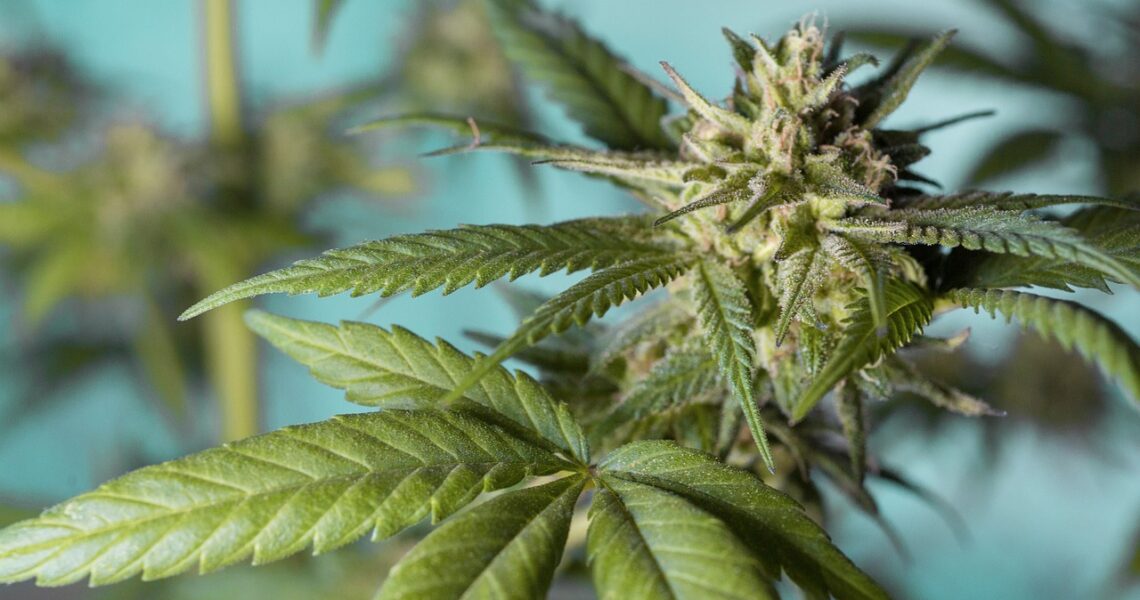-
Table of Contents
- THCA Flower 101: Understanding Its Unique Properties and Health Benefits
- What is THCA?
- Decarboxylation Process
- Unique Properties of THCA
- Health Benefits of THCA Flower
- Pain Relief
- Anti-Inflammatory Effects
- Neuroprotective Properties
- Anti-Emetic Benefits
- How to Use THCA Flower
- Case Studies and Statistics
- Conclusion
THCA Flower 101: Understanding Its Unique Properties and Health Benefits
THCA, or tetrahydrocannabinolic acid, is a cannabinoid found in raw and live cannabis. Unlike THC, THCA is non-psychoactive, meaning it does not produce the “high” associated with cannabis use. This article explores the unique properties of THCA flower and its potential health benefits.
What is THCA?
THCA is the acidic precursor to THC. When cannabis is in its raw form, it contains THCA rather than THC. Through a process called decarboxylation, which involves heating the cannabis, THCA converts into THC. This transformation is what gives cannabis its psychoactive properties.
Decarboxylation Process
Decarboxylation occurs when cannabis is exposed to heat or light. This process removes a carboxyl group from the THCA molecule, converting it into THC. Common methods of decarboxylation include smoking, vaping, or cooking cannabis.
Unique Properties of THCA
THCA has several unique properties that distinguish it from other cannabinoids. These properties make it a subject of interest for both researchers and consumers.
- Non-Psychoactive: THCA does not produce the psychoactive effects associated with THC.
- Anti-Inflammatory: Research suggests that THCA has anti-inflammatory properties, which may help with conditions like arthritis.
- Neuroprotective: Some studies indicate that THCA may have neuroprotective effects, potentially benefiting those with neurodegenerative diseases.
- Anti-Emetic: THCA may help reduce nausea and vomiting, making it useful for patients undergoing chemotherapy.
Health Benefits of THCA Flower
THCA flower offers a range of potential health benefits, supported by both anecdotal evidence and scientific research. Here are some of the most notable benefits:
Pain Relief
Many users report that THCA flower helps alleviate chronic pain. This is particularly beneficial for individuals with conditions like fibromyalgia or multiple sclerosis. A study published in the “Journal of Pain Research” found that cannabinoids, including THCA, can significantly reduce pain levels.
Anti-Inflammatory Effects
Inflammation is a common factor in many chronic diseases. THCA’s anti-inflammatory properties make it a promising option for managing conditions like arthritis and inflammatory bowel disease. Research published in “Pharmacology & Pharmacy” supports these findings, highlighting THCA’s potential to reduce inflammation.
Neuroprotective Properties
THCA may offer neuroprotective benefits, which could be valuable for individuals with neurodegenerative diseases like Alzheimer’s or Parkinson’s. A study in “Neurotherapeutics” suggests that THCA can help protect brain cells from damage, potentially slowing the progression of these diseases.
Anti-Emetic Benefits
Nausea and vomiting are common side effects of chemotherapy. THCA’s anti-emetic properties can help alleviate these symptoms, improving the quality of life for cancer patients. Research in “The British Journal of Pharmacology” supports the use of cannabinoids, including THCA, for reducing nausea and vomiting.
How to Use THCA Flower
There are several ways to use THCA flower, each with its own set of benefits. Here are some popular methods:
- Juicing: Juicing raw cannabis leaves and flowers is a popular way to consume THCA without converting it to THC. This method preserves the non-psychoactive properties of THCA.
- Tinctures: THCA tinctures are another effective way to consume this cannabinoid. They can be taken sublingually (under the tongue) for quick absorption.
- Topicals: THCA-infused topicals can be applied directly to the skin, providing localized relief from pain and inflammation.
- Capsules: THCA capsules offer a convenient way to consume this cannabinoid, especially for those who prefer not to smoke or vape.
Case Studies and Statistics
Several case studies and statistics highlight the potential benefits of THCA flower. For example, a case study published in “Epilepsy & Behavior” documented a significant reduction in seizure frequency in a patient using THCA. Another study in “The Journal of Clinical Investigation” found that THCA could reduce inflammation and pain in animal models.
Statistics from patient surveys also support the use of THCA for various conditions. According to a survey conducted by the “American Journal of Hospice and Palliative Medicine,” 70% of patients using THCA reported a reduction in pain and inflammation.
Conclusion
THCA flower offers a range of unique properties and potential health benefits. From its non-psychoactive nature to its anti-inflammatory and neuroprotective effects, THCA is a promising cannabinoid for various medical conditions. Whether used in raw form, tinctures, topicals, or capsules, THCA provides a versatile option for those seeking alternative treatments.
